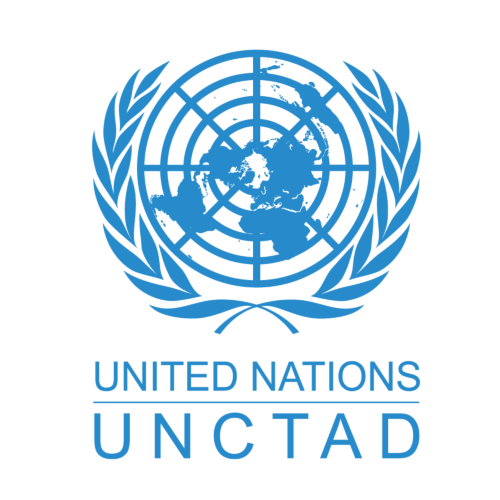Log in and enrol
Designing and Implementing Effective Entrepreneurship Policies
Designing and Implementing Effective Entrepreneurship Policies
Description and analysis of the rationales, modalities, monitoring and evaluation of entrepreneurship policies
Course description
This course is targeted to policy makers, policy influencers, public servants and administrative officials who at various levels are interested in entrepreneurship dynamics and are responsible for the design and the implementation of related policies.
The course gathers leading experts from Polimi and UNCTAD to let the participants:
- Understand the role of policy makers in response of market failures in entrepreneurial activities.
- Learn that policy making can play a key role in shaping an ideal institutional setting for productive entrepreneurship.
- Learn about the Sustainable Development Goals and the role of entrepreneurship in meeting these challenges.
- Learn how to formulate a National Entrepreneurship Strategy.
- Understand the different ways through which policy making can influence entrepreneurship dynamics by acting on several domains of interest, including regulation, education, innovation, finance and networking.
- Learn on qualitative and quantitative indicators and methods which are useful to perform monitoring and evaluation functions.
- Understand the main logic behind monitoring and evaluation techniques.
By the end of the course you will be able to:
- Describe the main rationales for policy interventions in the entrepreneurship domain.
- Analyse the characteristics of the vast array of policy measures implementable to sustain entrepreneurship in different countries.
- Explain the importance of performing monitoring and evaluation analyses of entrepreneurship policies in the related context and the main associated challenges.
Total workload of the course: 5 hours
This MOOC is provided by Politecnico di Milano.

The course is a joint initiative with Unctad, the United Nations Conference on Trade and Development which has installed entrepreneurship centers, and is delivering Empretec, a behavioral entrepreneurship training programme (Empretec Unctad), in 36 developing countries.
Intended Learning Outcomes
By actively participating in this MOOC, you will be able to achieve different intended learning outcomes (ILOs).
- Describe the main rationales for policy interventions in the entrepreneurship domain.
- Analyse the characteristics of the vast array of policy measures implementable to sustain entrepreneurship in different countries.
- Explain the importance of performing monitoring and evaluation analyses of entrepreneurship policies in the related context and the main associated challenges.
In broad terms, the participant will develop the learning outcomes in the areas of: ESCO: policy analysis ESCO: social entrepreneurship ESCO: entrepreneurship
Prerequisites
No prerequisite knowledge is required.
Activities
Over and above consulting the content, in the form of videos and other web-based resources, you will have the opportunity to discuss course topics and to share ideas with your peers in the Forum of this MOOC.
Assessment
Your final grade for the course will be based on the results of your answers to the assessed quizzes. You have an unlimited number of attempts at each quiz, but you must wait 15 minutes before you can try again. You will have successfully completed the course if you score a total of 60% (or higher) in each of the assessed quizzes.
The maximum score possible for each quiz is given at the beginning of the quiz. You can view your score in the quiz on your last attempt or on the 'Grades' page.
Certificate
You can achieve a certificate in the form of an Open Badge for this course if you reach at least 60% of the total score in each one of the assessed quizzes and fill in the final survey.
Once you have completed the required tasks, you will be able to access “Get the Open Badge” and start issuing the badge. Instructions on how to access the badge will be sent to your e-mail address.
The Badge does not confer any academic credit, grade or degree.
Information about fees and access to materials
You can access the course absolutely free of charge and completely online.
Course faculty

Fulvia Farinelli, UNCTAD
Fulvia Farinelli works at UNCTAD since 1998. Her academic background focuses on issues related to entrepreneurship and SME development, including innovation, business linkages and global value chains. She holds a PhD on Economic and Policy Studies on Innovation and Technical Change from Maastricht University, the Netherlands.

Luca Grilli, Politecnico di Milano, School of Management
Luca Grilli is Professor of Business and Industrial Economics at Politecnico di Milano. His main research interests revolve around the economics of institutions with specific reference to entrepreneurship and innovation dynamics in high-tech sectors and regulated industries. He has participated in numerous scientific projects, including the recent H2020 Research Grant on “Financial and Institutions for an Entrepreneurial Society” (Projectfires), where he was responsible for the POLIMI Research Unit. He is member of the Center for Global Business and Institutions of the School of Management of Politecnico di Milano.

Boris Mrkajic, Politecnico di Milano, School of Management
Boris Mrkajic is a postdoctoral fellow at the School of Management of Politecnico di Milano. His research interests revolve around applied innovation and entrepreneurship. In particular, Boris studies human capital of new technology-based business ventures, as well as support systems of sustainable entrepreneurial ecosystem such as Venture Capital and Business Accelerators. He teaches Business and Industrial Economics course at the master’s level (Politecnico di Milano).

Fiorina Mugione, UNCTAD
Fiorina Mugione is an Economist with more than twenty years’ experience in international organizations, working primarily in the areas of research and analysis in enterprise, investment and development issues at ESCAP, OECD and UNCTAD. She leads the Entrepreneurship Programme at UNCTAD’s Division on Investment and Enterprise. The programme aims to strengthen the supply capacity of small and medium enterprises through entrepreneurship and business linkages development. She also coordinates the EMPRETEC programme in 37 countries around the world.

Alejandro Rubias Hernardez, UNCTAD
Alejandro Rubias-Hernandez is an Economic Affairs officer in the Division on Investment and Enterprise of UNCTAD, where he works to support developing countries and economies in transition in the design of initiatives to promote entrepreneurship. He also provides technical assistance to training centres across the globe that have adopted UNCTAD’s EMPRETEC entrepreneurship program. He is specialized in youth entrepreneurship, and is the project leader for French-speaking countries.

Philippe Rudaz, UNCTAD
PhD Economist with 10 years’ experience in the field of economic development, in particular in research and technical projects, policy analysis and business development in the private sector and international organizations. Philippe has a solid expertise in the private sector development of former soviet economies, notably, in Russia, Central Asia and the Caucasus. He contributes to UNCTAD Entrepreneurship Policies and technical paper on entrepreneurship in the Division on Investment and Enterprise.

Lorenzo Tosini, UNCTAD
Lorenzo Tosini is a Programme Officer in the Division on Investment and Enterprise of UNCTAD, where he works to support developing countries and economies in transition in the implementation of technical assistance projects to promote entrepreneurship and SME development. He is in charge of Empretec and Business Linkages UNCTAD’s technical assistance programmes in Africa and is coordinating the global network of Empretec centres. He is also working on the standardization of training materials.
Contact details
If you have any enquiries about the course or if you need technical assistance please contact pok@polimi.it. For further information, see FAQ page.